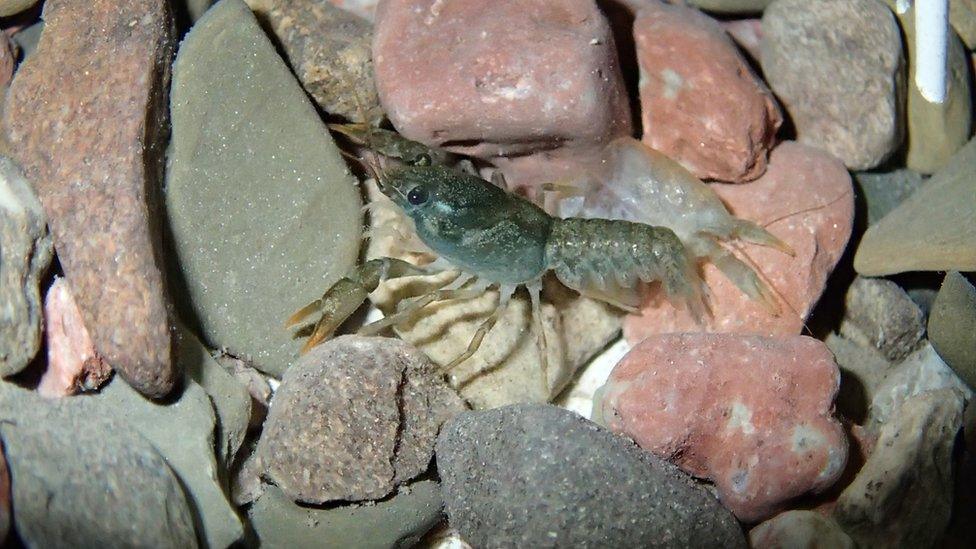Suspected 'plague' blamed for Herefordshire crayfish deaths
- Published
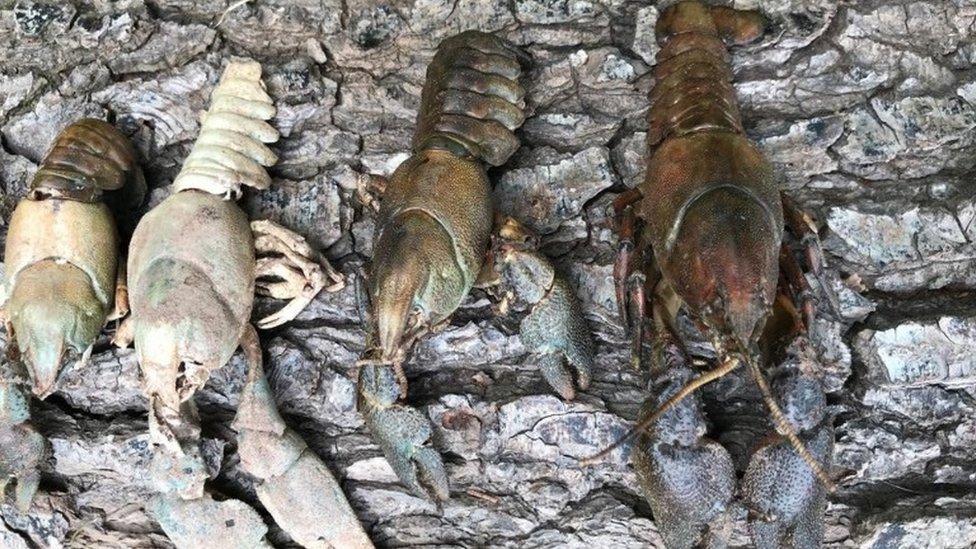
The plague was brought to the UK by the American signal crayfish in the 1970s
A suspected outbreak of a deadly disease has killed dozens of endangered crustaceans in a waterway that runs through Herefordshire.
Large numbers white-clawed crayfish have been found dead in the Cwm y Caddo, a tributary near the Welsh border leading into the River Monnow.
The Environment Agency said it believed the cause was crayfish plague and has sent specimens for testing.
Anglers and waterway visitors are being advised to disinfect their equipment.
Chris Bainger, fisheries technical specialist for the agency, posted on social media about his concerns.
Allow X content?
This article contains content provided by X. We ask for your permission before anything is loaded, as they may be using cookies and other technologies. You may want to read X’s cookie policy, external and privacy policy, external before accepting. To view this content choose ‘accept and continue’.
He said: "I'm significantly worried.
"I think sadly, it could be the end of the white-clawed crayfish in this area. It could become locally extinct.
"A non-native species is getting the upper hand and one that we don't necessarily want."
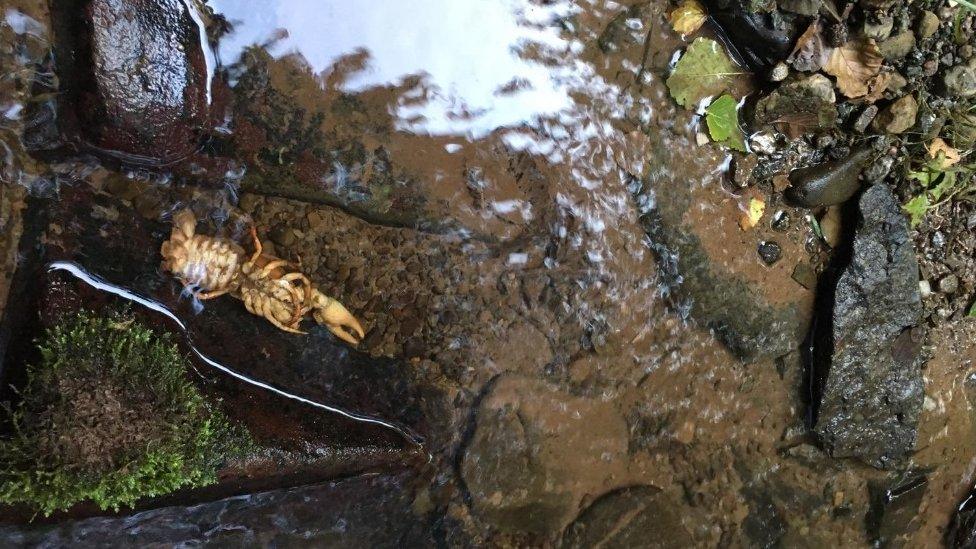
A large number of white-clawed crayfish have died
The plague, which is a mould, comes from the American signal crayfish which were introduced to Britain in the 1970s as a food source, but escaped into local waters.
Spores of the crayfish plague are very infectious but it has no health implications for humans or other animals.
The suspected outbreak could also have an impact on fish populations, Mr Bainger added.
"It could be very serious... we could lose a local population here and if it is confirmed as plague, it could be very easily transferred to other populations nearby.
"Native crayfish are in decline, we've got to do as much as we can to protect them."
Anglers and visitors to the waterway are being advised to wash boots and equipment, using disinfectant to remove any mud.
"What we say to the public, the best thing you can do is check, clean, dry," Mr Bainger said.
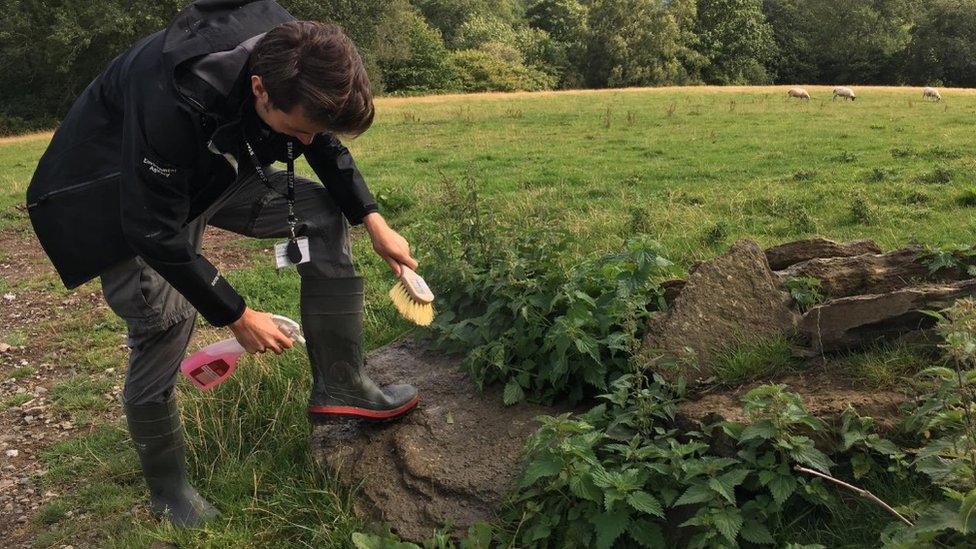
The Environment Agency said people should "check, clean and dry" boots and equipment

Follow BBC West Midlands on Facebook, external, on Twitter, external, and sign up for local news updates direct to your phone., external
- Published6 September 2019
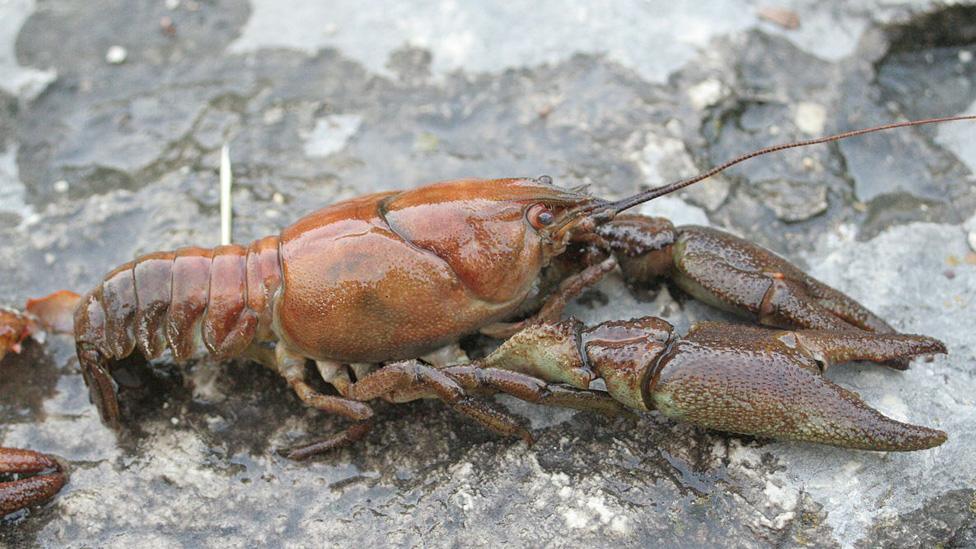
- Published14 August 2019
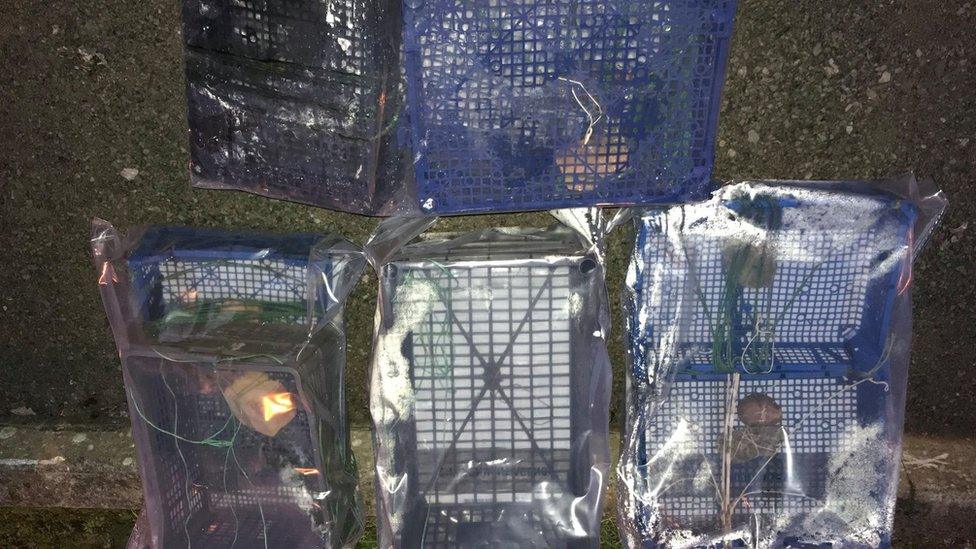
- Published13 March 2018
